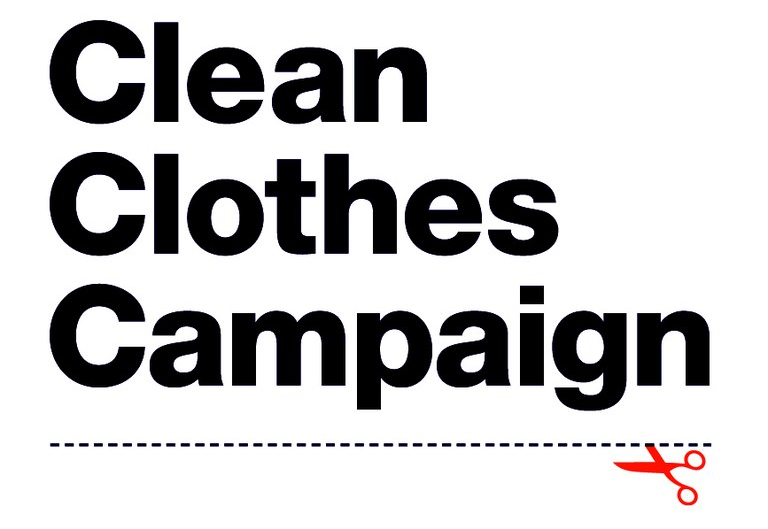Search results
12 results
Sort by:
Leading Sports Brands, Unions, NGOs Form Working Group
A month before the start of the Beijing Olympics key sporting goods brands including Nike, adidas, New Balance, Umbro and Speedo are forming a ground breaking joint working group with trade unions and NGOs to explore amongst other issues how to promote trade unionism and collective bargaining as well as improving wages across the sector.
Vancouver Olympics: Sportswear Brands in Trouble
Despite making positive statements at the time of the 2008 Olympics about cleaning up an industry rife with rights violations, major sportswear brands have taken little action since to improve wages and working conditions for the workers who produce their goods.
Playfair 2012 launches campaign for an ethical London Olympics
On Saturday 27 february, As the Olympic torch was handed on from this year's Winter Olympics in Vancouver to London, the Playfair 2012 coalition launched a campaign for an ethical London Games.
Play Fair Campaign launches in Brazil ahead of 2014.
An international conference organised by "Play Fair" and the Building Workers' International has opened in Rio de Janeiro, Brazil. The Conference will launch the BWI Campaign around the World Cup 2014, as well as the Olympic Games 2016 Play Fair Campaign.
Abuses still exist in Olympic supply chains, says Playfair 2012
Workers making Olympic sportswear for London 2012 for top brands and high street names including Adidas and Next are being paid poverty wages, forced to work excessive overtime and threatened with instant dismissal if they complain about working conditions, according to a new report from the Playfair 2012 campaign published today.
Light the Flame for a fair Olympics
Summer is almost here and with it the Olympic Games in London. The Olympics Games aims to “build a better world through sport” and promotes values of fair play, respect and equality Unfair play, disrespect and inequality aren’t values we usually associate with the Olympics. But for some workers making Olympic goods and sportswear, this is what the Olympic ideal really means.
Nike, adidas and Puma's workers earn poverty wages to pay for European championship endorsements
The three main sportswear sponsors of the UEFA European championship 2016, Nike, adidas and Puma, pay poverty wages to the workers that stitch their shirts, shows a report by Collectif Ethique sur l’étiquette (Clean Clothes Campaign in France), presented in English today. The report ‘Foul Play’ exposes the adverse impact on workers of a business model based on low labour costs and relocation to countries with the lowest wages and weak labour regulation. At the same time these brands invest massively in endorsement deals with players, national teams and clubs. Nike, adidas and Puma's prime concern is economic performance and profit, which will be considerable during the European championship, while the workers come off worst.
Sweet FA? Football Associations, workers' rights, and the World Cup
The world's Football Associations makes millions from sponsorship and licensing arrangements, while their sponsors are expecting hundreds of millions of pounds in additional revenue from World Cup goods. Meanwhile, the people stitching the footballs, sewing the shirts and glueing the boots that will earn this money are working late into the night, six or seven days a week, for poverty wages. Those that attempt to form trade unions to try to improve their working conditions are persecuted and often lose their jobs. This report gives examples of these violations of workers rights. Written by the TUC and Labour Behind the Label, 2006.
Sector Wide Solutions Indonesia (Revised version 2009)
This document sets out sector-wide solutions for the sports shoe and apparel industry in Indonesia. These solutions are put forward by Oxfam Australia, the Clean Clothes Campaign and a network of labour rights groups worldwide (which include consumer groups) who remain concerned about continued and pervasive labour rights violations in the supply chain1 of major buyers (retailers and brands) in Indonesia. Written by Oxfam Australia and Clean Clothes Campaign, 2009.
The Structural Crisis of Labour Flexibility: Strategies and Prospects for Transnational Labour Organising in the Garment and Sportswear Industries
This paper from May 2008 is part of an ongoing evaluation and strategising process through which the CCC's aims and activities can be accessed, reviewed, redefined and adapted. The central question here is what strategies, tools, campaigns would help to achieve our objectives? The paper first discusses why poor working conditions are so persistent in the global garment industry, despite fifteen years of codes of conduct. The second section discusses three main strategies the CCC has employed over the last 15 year to improve working conditions. It includes an overview of how the debate on codes of conduct, monitoring and verification has evolved. Finally, the third section discusses the three broad strategies that might increase the impact of voluntary, private instruments on working conditions. It discusses three different contexts in which voluntary initiatives can contribute to improve working conditions.
Missed the Goal for Workers: The Reality of Soccer Ball Stitchers in Pakistan, India, China and Thailand
This report presents the key findings of the International Labor Rights Forum’s research in the four largest soccer balls producing countries: Pakistan, India, China and Thailand. This report also highlights the need to rethink the strategies being utilized by companies to encourage suppliers to adhere to strong labor standards. Written by the International Labor Rights Forum, 2010.
The Life of Football Factory Workers in Thailand
While sportswear companies rake in their profits and World Cup players and fans enjoy the matches in Germany, the Thai women who put together footballs for major brands such as adidas earn so little they can do little more than buy food. Report written by the Thai Labour Campaign in 2006.
